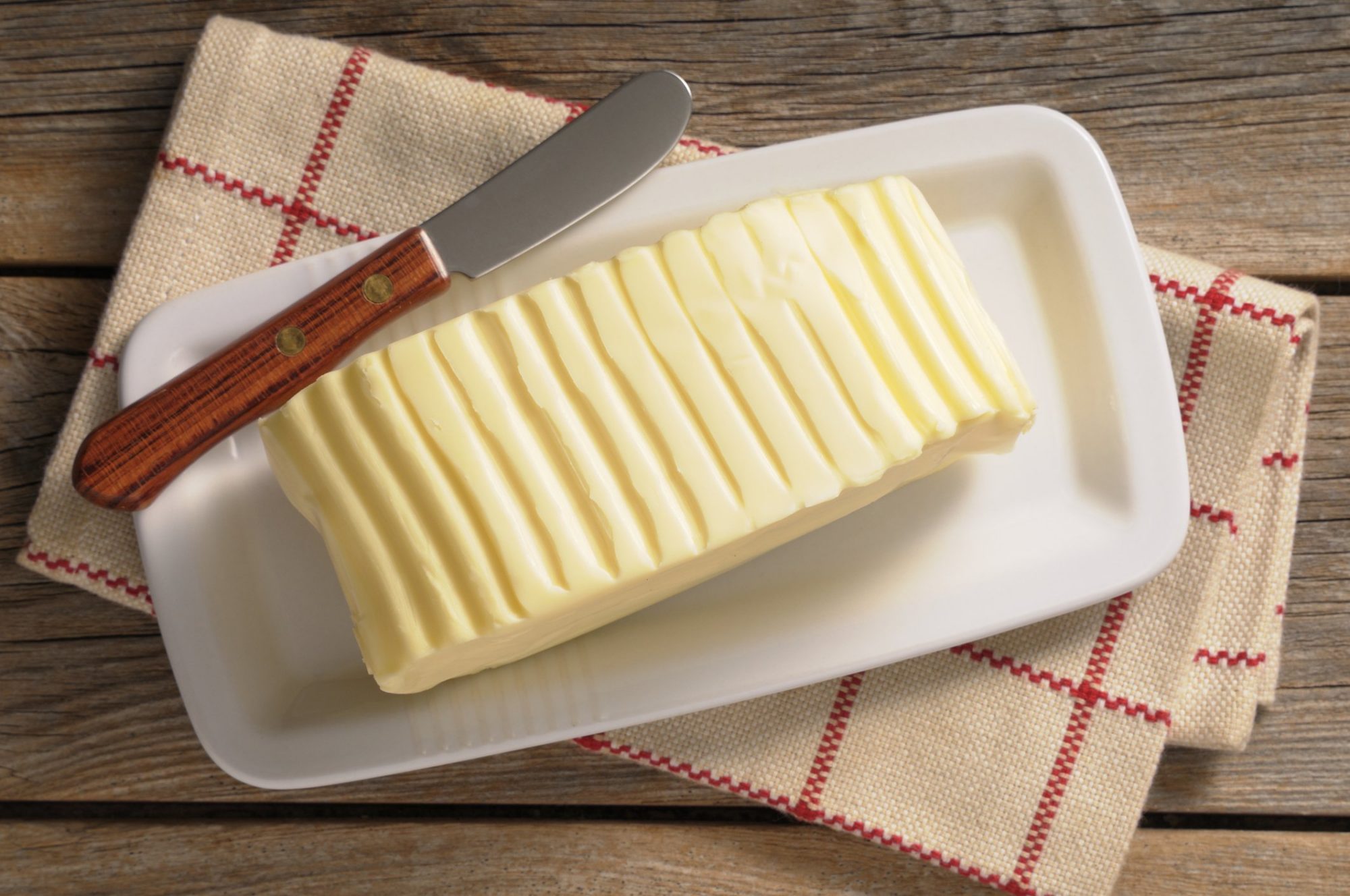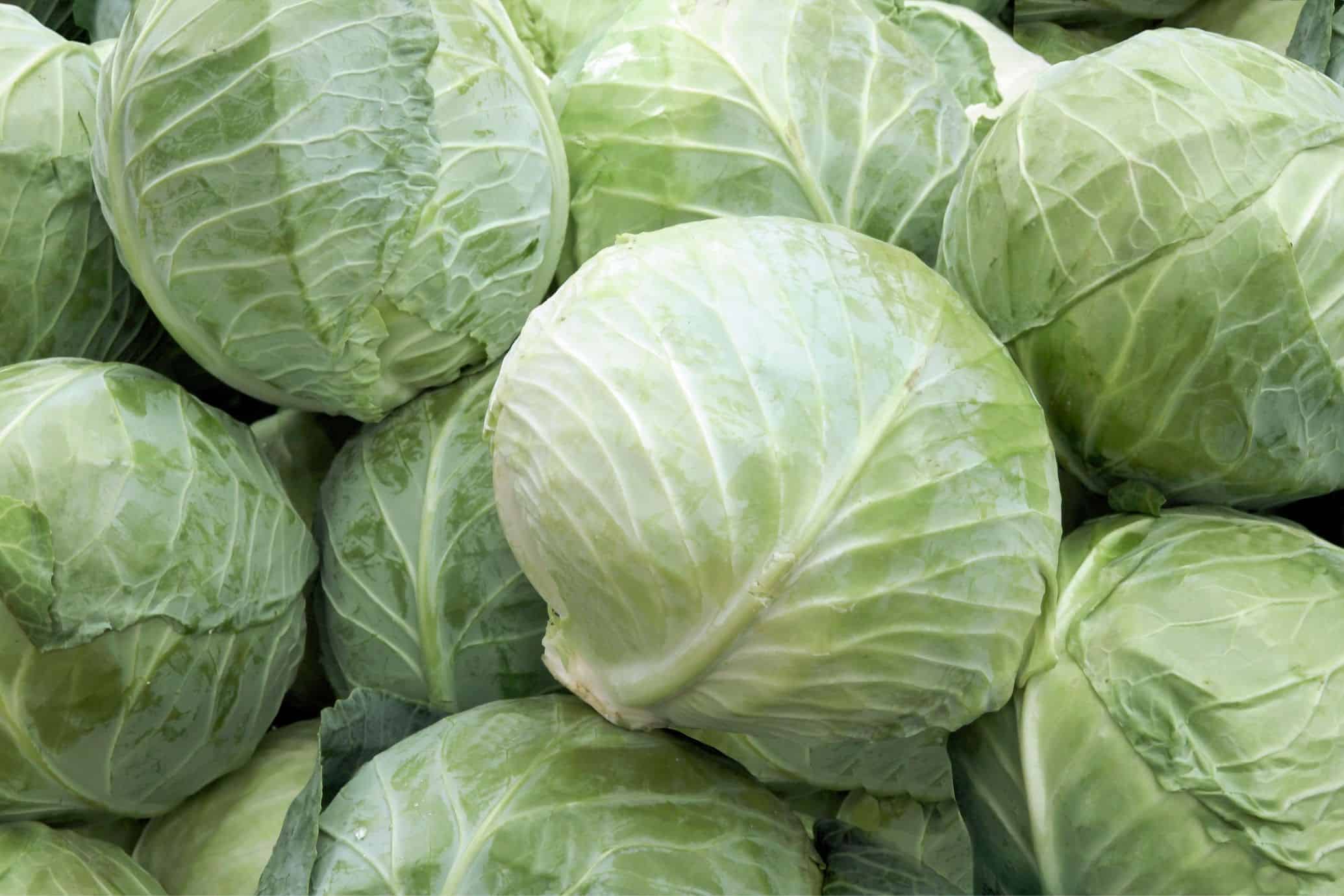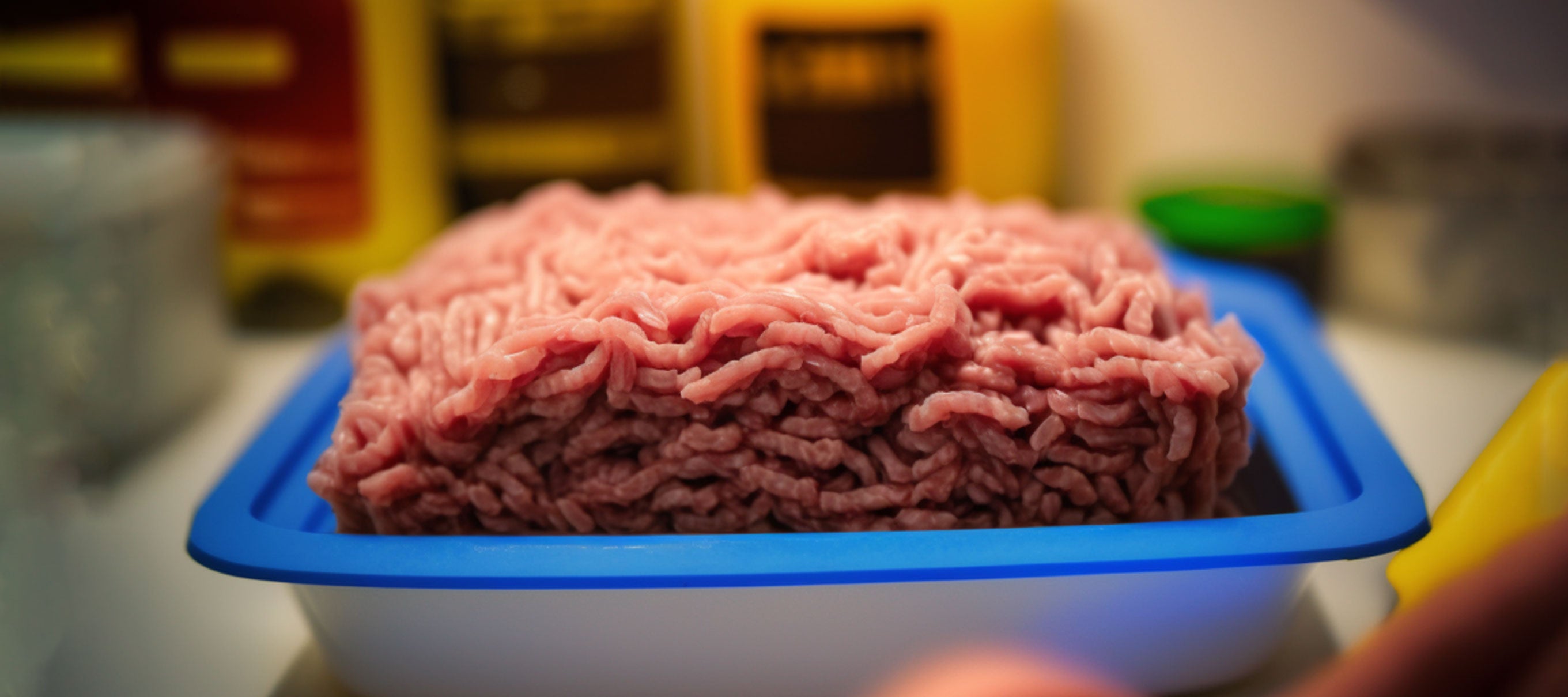

Articles
How Long Will Butter Last In The Refrigerator
Modified: December 6, 2023
Discover articles about how long butter will last in the refrigerator and learn helpful tips to ensure its freshness.
(Many of the links in this article redirect to a specific reviewed product. Your purchase of these products through affiliate links helps to generate commission for Storables.com, at no extra cost. Learn more)
Introduction
Butter is a versatile and delicious ingredient that can enhance the flavor of any dish. Whether it’s spread on toast, used in baking, or melted over vegetables, butter adds a rich and creamy element to meals. However, it’s important to know how long butter can last in the refrigerator to ensure its freshness and safety.
The shelf life of butter can vary depending on several factors, such as the type of butter, storage conditions, and the presence of any additives. In this article, we will explore the factors that affect the shelf life of butter, provide tips for its proper storage, and discuss how to recognize signs of spoiled butter. Additionally, we will address the common question: how long does butter last in the refrigerator?
Understanding these crucial details will help you make informed decisions regarding the use and storage of butter, ensuring that you get the most out of this delightful ingredient.
Key Takeaways:
- Proper storage in the refrigerator, using airtight containers, and avoiding exposure to light and heat can extend the shelf life of butter, ensuring its freshness and quality for several weeks to a few months.
- Recognizing signs of spoiled butter, such as off odors, discoloration, mold, unusual texture, and performing a taste test, is crucial for determining the safety and freshness of butter, even beyond the expiration date.
Read more: How Long Can Butter Last In The Freezer
Factors Affecting Butter Shelf Life
Several factors can influence the shelf life of butter, including:
- Type of Butter: The type of butter you have can affect its shelf life. Unsalted butter tends to have a shorter shelf life compared to salted butter due to its lower acidity levels. This is because salt acts as a preservative, helping to extend the butter’s freshness.
- Quality of Ingredients: The quality of the ingredients used to make the butter can impact its shelf life. Butter made from high-quality cream is likely to have a longer shelf life compared to butter made from lower-quality ingredients.
- Storage Conditions: Proper storage is crucial for maintaining the freshness of butter. Exposure to air, light, and heat can accelerate the spoilage process. It’s important to store butter in an airtight container or wrap it tightly with foil or plastic wrap to prevent air from reaching the surface of the butter.
- Additives or Preservatives: Some butter brands may add additives or preservatives to extend the shelf life of their product. These additives can help inhibit the growth of bacteria and mold, extending the butter’s freshness.
It’s important to note that even with the best storage practices, butter will eventually go bad. Therefore, it’s crucial to be aware of the signs of spoiled butter to ensure your safety when consuming it.
Next, let’s explore the proper storage methods for butter to maximize its shelf life.
Proper Storage of Butter
To ensure the longevity and quality of your butter, here are some tips for proper storage:
- Refrigeration is Key: Butter should always be stored in the refrigerator. The cool temperature slows down the deterioration process and helps maintain its freshness. Make sure to place the butter in the cooler section of the refrigerator, away from any temperature fluctuations.
- Use Airtight Containers: To prevent the absorption of strong odors from other foods in the fridge, store butter in an airtight container or wrap it tightly with foil or plastic wrap. This will also help protect the butter from exposure to air, which can cause it to become rancid.
- Avoid Direct Light or Heat: Butter should be stored in a dark and cool place in the refrigerator. Exposure to direct light or heat can lead to the deterioration of the butter’s quality and taste.
- Keep Away from Strong Odors: Butter has a tendency to absorb strong odors from other foods. Therefore, it is recommended to store it away from items like onions, garlic, or strong-smelling cheeses.
By following these storage guidelines, you can prolong the shelf life of your butter and maintain its flavor and freshness for longer periods.
Now that we have covered the proper storage methods, let’s discuss how to recognize if your butter has gone bad.
Signs of Spoiled Butter
It’s essential to know how to identify if your butter has gone bad to avoid consuming spoiled or potentially harmful butter. Look out for the following signs:
- Off Odor: One of the most apparent signs of spoiled butter is a rancid or sour smell. If your butter has a strong, unpleasant odor, it is likely past its prime and should be discarded.
- Discoloration: Fresh butter should have a uniform color, typically a pale yellow. If you notice any discoloration, such as dark spots or an uneven color, it may indicate that the butter has started to spoil.
- Mold or Mildew: If you see signs of mold or mildew on your butter, it is a clear indication that it has gone bad. Do not consume butter with visible mold, as it can pose health risks.
- Unusual Texture: Good quality butter should have a smooth and creamy texture. If you notice any sliminess or a grainy texture, it could be a sign of spoilage.
- Taste Test: If your butter exhibits any of the above signs, it’s best not to consume it. However, if you are unsure, you can perform a small taste test. If the taste is off or unpleasant, it’s an indication that the butter has gone bad.
Keep in mind that while some minor changes in color or texture may occur as butter ages, it’s best to err on the side of caution and discard it if any significant signs of spoilage are present.
Now that you can identify spoiled butter, let’s dive into the question that most people ask: How long does butter last in the refrigerator?
Store butter in an airtight container in the refrigerator to extend its shelf life. It can last for up to 1-3 months if properly stored.
How Long Does Butter Last in the Refrigerator?
The shelf life of butter in the refrigerator can vary depending on several factors, including the type of butter and the storage conditions. Generally, properly stored butter can last for several weeks to a few months in the refrigerator.
Here are some guidelines to keep in mind:
- Salted Butter: Salted butter generally has a longer shelf life compared to unsalted butter. It can last for around 3-4 months in the refrigerator when stored properly.
- Unsalted Butter: Unsalted butter tends to have a slightly shorter shelf life compared to salted butter. It can last for about 2-3 months in the refrigerator.
- Clarified Butter: Clarified butter, also known as ghee, has a longer shelf life compared to regular butter. It can last for several months to a year when stored properly in the refrigerator.
It’s important to remember that these are general guidelines, and the freshness and quality of the butter can vary. Always rely on your senses and the signs of spoilage mentioned earlier to determine if the butter is still safe to consume.
Additionally, if you’re unsure about the freshness of your butter, you can check the expiration date printed on the packaging. However, it’s important to note that this date is only a guideline and doesn’t guarantee the butter’s quality.
Now that you know how long butter can last in the refrigerator, let’s explore some tips to extend its shelf life.
Read more: How Long Does A Refrigerator Last
Tips for Prolonging Butter Shelf Life
To extend the shelf life of your butter and keep it fresh for a longer time, consider the following tips:
- Proper Packaging: Ensure that your butter is tightly wrapped in an airtight container or sealed with foil or plastic wrap to prevent air exposure and the absorption of other odors in the refrigerator.
- Keep it Cool: Store your butter in the coolest part of the refrigerator, away from any temperature fluctuations. Avoid placing it in the refrigerator door, as it is often exposed to warmer temperatures when the door is opened frequently.
- Use a Butter Dish: If you prefer to keep a small amount of butter at room temperature for easy spreading, use a butter dish with a lid. This will protect it from external contaminants and maintain its freshness for a short period.
- Freezing Butter: If you have a surplus of butter or want to extend its shelf life even further, you can freeze it. Wrap the butter tightly in freezer-safe packaging or use an airtight container. When properly stored, frozen butter can last for up to six months. Thaw it in the refrigerator before using.
- Rotate Stock: If you regularly use butter, practice the “first in, first out” rule. By using the oldest butter first and rotating your stock, you will prevent any butter from sitting too long in the refrigerator.
By following these tips, you can prolong the shelf life of your butter and ensure its freshness for an extended period.
Now, let’s address some commonly asked questions about butter storage.
Butter Storage FAQs
Here are some frequently asked questions regarding butter storage:
1. Can I leave butter out on the counter?
While it is possible to leave a small amount of butter at room temperature for short periods, it is generally recommended to store butter in the refrigerator to maintain its freshness and prevent spoilage.
2. Can I freeze butter?
Yes, butter can be frozen to extend its shelf life. Wrap it tightly in freezer-safe packaging or use an airtight container. When properly stored, frozen butter can last for several months.
3. Can I refreeze butter after thawing?
It is best to avoid refreezing butter after it has been thawed, as it can affect its quality and texture. It’s recommended to only thaw the amount of butter you need to use at a time.
4. Can I store butter in the fridge door?
It’s not recommended to store butter in the refrigerator door. The door is often exposed to warmer temperatures when opened frequently, which can lead to faster spoilage of the butter. Store butter in the main compartment of the refrigerator for optimal freshness.
5. Can I eat butter past its expiration date?
The expiration date on butter is a guideline for optimal freshness, but it doesn’t necessarily mean the butter is spoiled after that date. Trust your senses and perform a visual and smell test to determine if the butter is still safe to consume.
Remember, proper storage and handling are essential to maintaining the freshness and quality of your butter.
Now, let’s wrap up our discussion.
Conclusion
Properly storing butter is crucial to maintaining its freshness and maximizing its shelf life. By understanding the factors that can affect butter’s shelf life, following the guidelines for storage, and being aware of the signs of spoiled butter, you can ensure that your butter stays safe and delicious for as long as possible.
Remember to store your butter in the refrigerator, in an airtight container or wrapped tightly to prevent air exposure and the absorption of odors. Keep it away from heat, light, and strong-smelling foods. Use your senses to determine if your butter has gone bad, by checking for off odors, discoloration, mold, unusual texture, and performing a taste test.
The shelf life of butter can vary depending on the type of butter and storage conditions. Salted butter tends to last longer than unsalted butter, and clarified butter can have an even longer shelf life. Always check the expiration date on the packaging as a guideline, but rely on your senses and common sense to determine the freshness of the butter.
With proper storage and handling, you can extend the shelf life of your butter and make the most out of this versatile and delicious ingredient. Whether you’re spreading it on toast, using it in baking, or adding it to your favorite recipes, fresh and high-quality butter will enhance the flavor and texture of your dishes.
By following the tips and advice provided in this article, you can ensure that your butter remains fresh, safe, and enjoyable to use for an extended period. So, go ahead and savor the rich and creamy goodness of butter with the confidence of knowing how to store it properly!
Frequently Asked Questions about How Long Will Butter Last In The Refrigerator
Was this page helpful?
At Storables.com, we guarantee accurate and reliable information. Our content, validated by Expert Board Contributors, is crafted following stringent Editorial Policies. We're committed to providing you with well-researched, expert-backed insights for all your informational needs.















0 thoughts on “How Long Will Butter Last In The Refrigerator”